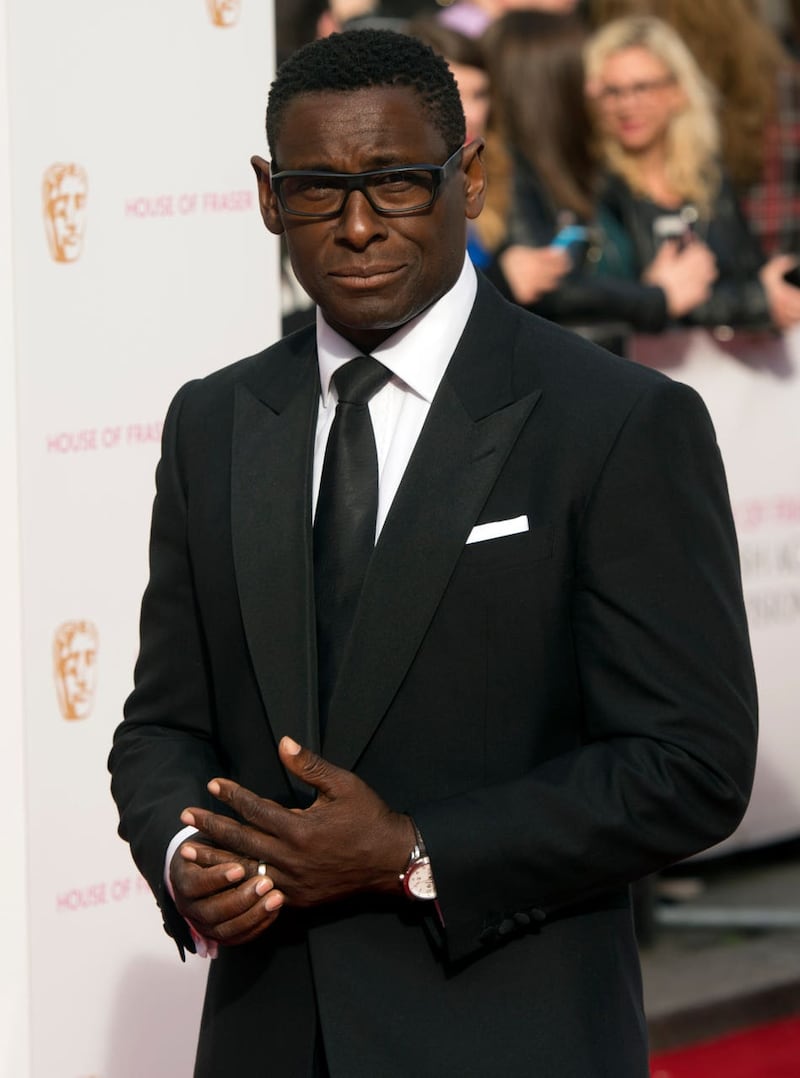English actor and presenter David Harewood has said his experience of a psychotic breakdown ultimately “made me more complete”.
Harewood, 56, found widespread fame playing CIA director David Estes in the US drama series Homeland.
Speaking on Radio 4’s Desert Island Discs, Harewood reflected on enduring a psychotic breakdown at the age of 23 and subsequently being sectioned twice after leaving drama school.
He told presenter Lauren Laverne: “I started to sort of have these moments of blackouts and suddenly wake up at three o’clock in the morning and I’d be outside Euston station in the middle of the night.
“And I’d go, ‘what on Earth am I doing here? I better go home’, and I’d start walking home and then black out, and I’d wake up in Camden at four o’clock in the afternoon.
“I was just in and out of reality. It was bizarre and scary and ethereal.”
In 2019, Harewood created a BBC documentary, Psychosis and Me, in which he explored psychosis, meeting people living with the mental illness and learning about the current available treatments.
Explaining how his experience ultimately made him the person he is today, Harewood said: “It has made me stronger and more rounded, and more understanding, and made me more complete.
“I think I’m very lucky that I’m one of the 15% of people who have a psychotic breakdown who don’t need further medication.
“Most people who suffer breakdowns will remain on some form of medication. But I’ve never experienced anything again.”
While discussing the potential causes of his breakdown, Harewood spoke candidly about experiencing racism as a child and the subsequent intrusive feelings that followed him into adulthood.
“It really suddenly hit me, that because I was black, he didn’t think I belonged here,” he told Laverne about a specific experience with an elderly man.
“I just always remember that being really discombobulating, and really confusing.
“As a young kid I just didn’t understand it, I thought ‘I’m from England’. I just buried everything, buried discomfort, buried the pain and just thought to sort of get on with my life and just assimilate.”
While performing in a theatre production after leaving drama school, Harewood revealed he received further abuse after a poor review in a black newspaper.
He said: “I read one, that was in The Voice newspaper, which is a black newspaper, really having a go at me saying how dare I play this role.

“That started to un-nerve me in this sense that I was being rejected.
“By the white spaces, rejected by the black space as well. It just started becoming too much.”
Despite the struggles he experienced, Harwood spoke positively about his career and the experience he has when he steps on stage.
He said: “You have surety on stage, you have certainty. We all rehearse the moves and everyone knows their lines, everyone’s wearing great costumes, everything’s set.
“And that’s not like life, is it? No-one knows their lines in real life. So, onstage I sort of grow.
“You give me a character and I pour myself into that character, and it gives me a sense of freedom.”
During the conversation, Walsh chose eight tracks to take with him to the Desert Island, including UB40’s One in Ten, D’Angelo’s Cruising and Ain’t Nobody by Chaka Khan and Rufus.
Harewood also chose to take a fold-out light-up dance floor as his luxury item.
– The full interview with David Harewood on Desert Island Discs will air on BBC Radio 4 and BBC Sounds on Sunday at 11am.








